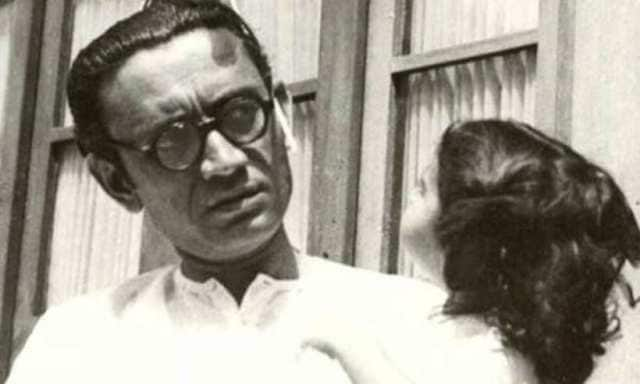
For most people who love reading, some books or stories acquire a special place. I have read Rahi Masoom Raza’s Topi Shukla and Saadat Hasan Manto’s “Toba Tek Singh” many times, and I am never tired of their evocative narrative. I have found it useful to reclaim empathy through reading. Regrettably, Rahi and Manto warned us long ago of the dangers we now face. Their works speak to the current moment urgently.
Both offer windows into the absurdities and fractures of a divided society. The wounds of Partition are more than 78 years old, yet they have never healed. They remain etched into our collective memory, manifesting in our prejudices that shape our everyday life and politics. When I witness rising communal polarisation and see the citizenship of our compatriots questioned, reading these texts feels less like a literary activity and more like a reckoning with the moral compass of our times.
Manto’s genius was to strip Partition of patriotic justifications and expose its absurdity. Reading the story, we realise that the “lunatics” in the asylum make the most sense. It is the bureaucrats with their lists who come to embody true madness. Bishan Singh’s death is not just an allegory of Partition but of every attempt to deny people their sense of belonging. To a thinking mind and a heart that feels, his figure would echo in the minorities, migrants, and refugees today who are denied belonging everywhere.
If Manto revealed the trauma of Partition, Rahi exposed how its scars persisted in everyday life years afterwards. His 1969 novel Topi Shukla follows the friendship of Topi, a Hindu boy, and Iffan, his Muslim classmate. Through their bond and eventual estrangement, Raza lays bare the prejudice embedded in middle-class India. Unlike Manto’s metaphorical asylum, Topi Shukla unfolds in classrooms, political debates, and family conversations. These are spaces where communal wounds fester under the guise of morality. The alienation that Topi experiences is produced by a politics incapable of protecting difference. He is tormented for refusing to conform to rigid identities, much like countless Indians today.
Reading Manto and Rahi together makes for a sharper critique. Manto captures the immediate insanity of dividing a people, whereas Rahi shows how that insanity is normalised into “respectable” prejudice. Bishan Singh dies in no man’s land, and Topi Shukla suffers a slow social death. The borders drawn on land and etched into the hearts of the people are where humanity perishes as a value.
These stories are evocative because Partition is not a closed chapter. It is a continuing condition of South Asian politics. Every time citizens are asked to “prove” belonging, every time polarisation is rewarded with electoral gain, every time friendships and relationships across faiths invite suspicion, Partition is replayed all over again.
India today is witnessing an alarming rise in communal rhetoric. Dog-whistles like “ghuspaithiya” (intruder) enter political speech and are celebrated. Citizenship is turned into a test of identity, with Muslims bearing the brunt of suspicion. Curricula are rewritten to erase syncretic traditions. Hate crimes are justified in the name of protecting the majority sentiment. Even today, Bishan Singh is caught between states and identities, trapped in camps or ghettos, belonging neither here nor there. Topi Shukla speaks directly to our universities and civil society, where friendships, solidarities, and dissent are eyed with suspicion, and conformity is demanded in the name of nationalism.
These works endure because they preserve the truth buried under grand, official histories, which is that communal division destroys individual lives first and foremost. “Toba Tek Singh” and Topi Shukla must be read because art serves as our conscience. They remind us that prejudices persist, and we need to call out the madness of exclusion. There is also a deeper lesson about memory. States often urge us to “move on” from Partition, treating it as settled history. But reading these stories recently hit me strongly with the truth of why forgetting is dangerous: Because to forget wrongs is to will that they be repeated. But to remember is also not a call for revenge. The Art of these storytellers calls for honest confrontations with violence so that we regain our humanity.
India today needs this politics of memory. We must neither glorify Partition as a nation-making triumph nor seek to forget it. We need to acknowledge the truth at the heart of this tragedy, whose lessons remain unlearnt even today, that the true victims of communal politics are not abstract “communities” but individual friendships, loyalties, and identities.
I wish more people would read these books again to recognise that prejudice is being repackaged as patriotism, that the line between sanity and madness in politics is perilously thin.
Both works compel us to ask what holds a society together when its people are divided by religion, politics, and prejudice. Their implicit answer is fraternity—the neglected pillar of our republic, without which liberty and equality cannot stand. At a time when India risks losing its civilisational promise of diversity and coexistence, we need to listen once again to Bishan Singh’s mutterings and Topi Shukla’s silences.
The writer is MP (Rajya Sabha), Rashtriya Janata Dal and his recently published book is ‘In Praise of Coalition Politics and Other Essays on Indian Democracy’